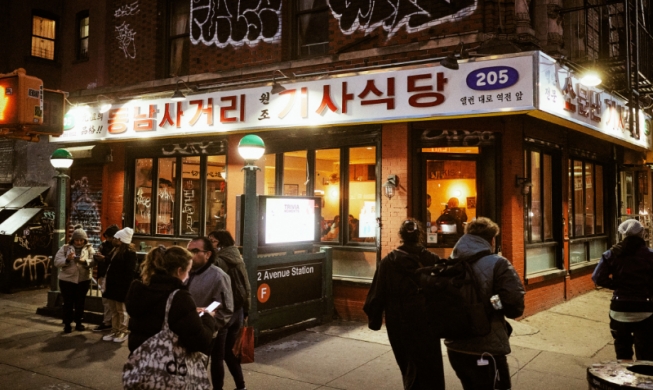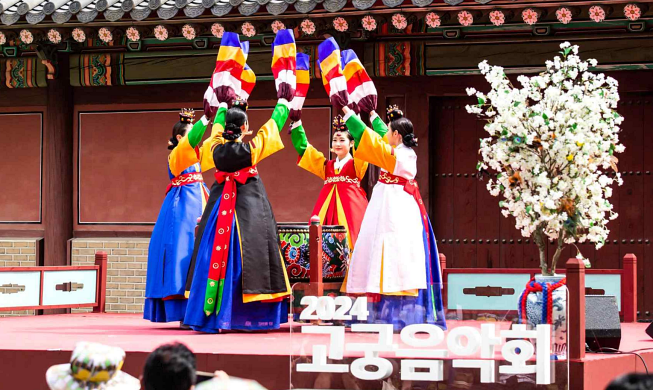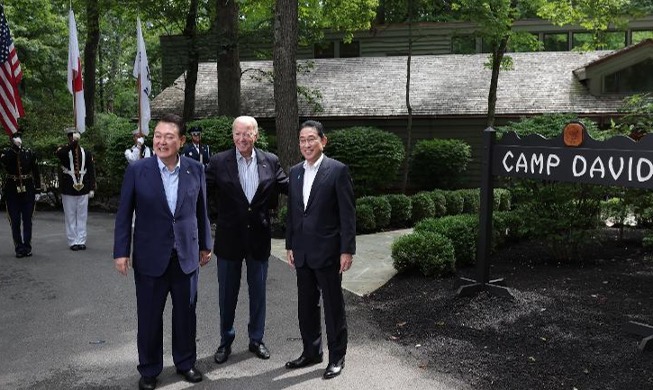-
 Korea.net's 24-hour YouTube channel
Korea.net's 24-hour YouTube channel- NEWS FOCUS
- ABOUT KOREA
- EVENTS
- RESOURCES
- GOVERNMENT
- ABOUT US

The Korean and Vietnamese governments have reached an agreement on a free trade deal.
The conclusion comes after two and a half years of negotiations, since August 2012. The announcement came on December 10 when President Park Geun-hye held a summit with Vietnamese Prime Minister Nguyen Tan Dung, who came to Korea to attend the two-day special summit between Korea and the 10-member Association of Southeast Asian Nations (ASEAN).
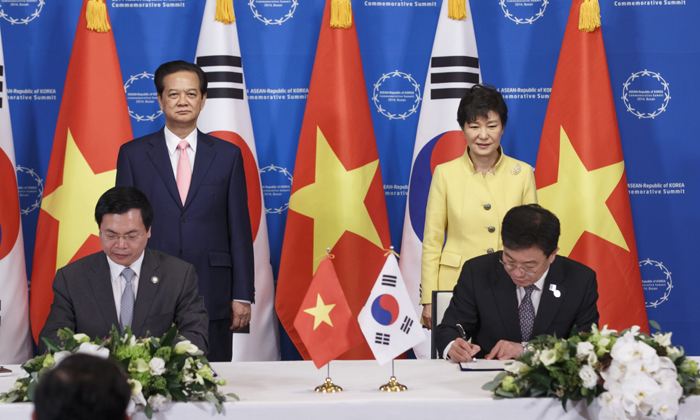
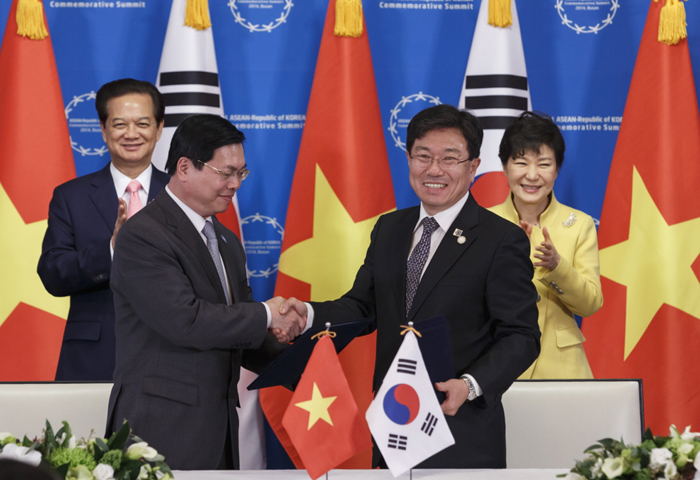
The deal covers a total of 17 areas spanning the whole economy, including products, services, investment and intellectual property rights.
During the summit, her first official scheduled event for the ASEAN-ROK Commemorative Summit, President Park discussed with the Vietnamese leader a range of issues as well as the free trade deal, including ways to further boost bilateral cooperation and how to deal with issues on the Korean Peninsula.
“Since the establishment of diplomatic relations in 1992, ties between the two countries have made rapid progress, in particular in the economic field,” said the Korean leader. "This FTA will help further develop the already close, cooperative relations," she said.
The two leaders continued to have in-depth discussions on a range of issues concerning the conclusion of the deal, such as helping Korean companies expand their business opportunities in large-scale projects involving energy-based facilities.
As of December 8 this year, the two sides have held nine rounds of talks, starting in August 2012.
As of last year, Vietnam is Korea's ninth-largest trading partner. The deal with Vietnam is expected to bring substantial benefits to both countries.
According to the agreement, Vietnam will open its markets for 200 additional Korean products, increasing by 6 percent the amount of trade between the two countries that was agreed upon by the Korea-ASEAN FTA. This is expected to increase Korea-Vietnam trade to some USD 740 million per year.
With the increased volume of trade, Korea’s liberalization rate has increased to 94.7 percent, three percentage points higher than the prior 91.7 percent, while Vietnam’s is at 92.2 percent, six percentage points higher than its prior 86.2 percent.
In particular, Vietnam has agreed to remove tariffs on 5-ton and 20-ton trucks, an item not included in the Korea-ASEAN free trade deal. The country agreed to open its markets for passenger cars with engines larger than three liters and for automobile parts, as well as for cosmetics and household appliances. Vietnam also decided to open its markets for e-commerce, a new section included in the Korea-Vietnam FTA for the first time.
Korea agreed to apply duty-free policies toward items that account for USD 170 million of trade per year, a figure that counts for three percentage points of Korea's total trade. The duty-free items include up to 15,000 tons of shrimp, worth USD 140 million.
Seoul will also open its markets for 495 additional Vietnamese goods, including crushed, dried and frozen garlic and ginger, while excluding other agricultural products such as rice.
Finally, the government agreed to open some markets in the service sector, including construction, landscape architecture and equipment rental.
By Wi Tack-whan, Sohn JiAe
Korea.net Staff Writers
Photos: the ASEAN-Republic of Korea Commemorative Summit
whan23@korea.kr
The conclusion comes after two and a half years of negotiations, since August 2012. The announcement came on December 10 when President Park Geun-hye held a summit with Vietnamese Prime Minister Nguyen Tan Dung, who came to Korea to attend the two-day special summit between Korea and the 10-member Association of Southeast Asian Nations (ASEAN).

President Park Geun-hye (back, right) and Vietnamese Prime Minister Nguyen Tan Dung (back, left) watch as Korean Minister of Trade, Industry and Energy Yoon Sang-jick (front, right) and his Vietnamese counterpart Vu Huy Hoang sign an FTA agreement between Korea and Vietnam on December 10 in Busan.

President Park Geun-hye (back, right) and Vietnamese Prime Minister Nguyen Tan Dung (back, left) applaud after Korean Minister of Trade, Industry and Energy Yoon Sang-jick (front, right) and his Vietnamese counterpart Vu Huy Hoang sign the Korea-Vietnam FTA on December 10 in Busan.
The deal covers a total of 17 areas spanning the whole economy, including products, services, investment and intellectual property rights.
During the summit, her first official scheduled event for the ASEAN-ROK Commemorative Summit, President Park discussed with the Vietnamese leader a range of issues as well as the free trade deal, including ways to further boost bilateral cooperation and how to deal with issues on the Korean Peninsula.
“Since the establishment of diplomatic relations in 1992, ties between the two countries have made rapid progress, in particular in the economic field,” said the Korean leader. "This FTA will help further develop the already close, cooperative relations," she said.
The two leaders continued to have in-depth discussions on a range of issues concerning the conclusion of the deal, such as helping Korean companies expand their business opportunities in large-scale projects involving energy-based facilities.
As of December 8 this year, the two sides have held nine rounds of talks, starting in August 2012.
As of last year, Vietnam is Korea's ninth-largest trading partner. The deal with Vietnam is expected to bring substantial benefits to both countries.
According to the agreement, Vietnam will open its markets for 200 additional Korean products, increasing by 6 percent the amount of trade between the two countries that was agreed upon by the Korea-ASEAN FTA. This is expected to increase Korea-Vietnam trade to some USD 740 million per year.
With the increased volume of trade, Korea’s liberalization rate has increased to 94.7 percent, three percentage points higher than the prior 91.7 percent, while Vietnam’s is at 92.2 percent, six percentage points higher than its prior 86.2 percent.
In particular, Vietnam has agreed to remove tariffs on 5-ton and 20-ton trucks, an item not included in the Korea-ASEAN free trade deal. The country agreed to open its markets for passenger cars with engines larger than three liters and for automobile parts, as well as for cosmetics and household appliances. Vietnam also decided to open its markets for e-commerce, a new section included in the Korea-Vietnam FTA for the first time.
Korea agreed to apply duty-free policies toward items that account for USD 170 million of trade per year, a figure that counts for three percentage points of Korea's total trade. The duty-free items include up to 15,000 tons of shrimp, worth USD 140 million.
Seoul will also open its markets for 495 additional Vietnamese goods, including crushed, dried and frozen garlic and ginger, while excluding other agricultural products such as rice.
Finally, the government agreed to open some markets in the service sector, including construction, landscape architecture and equipment rental.
By Wi Tack-whan, Sohn JiAe
Korea.net Staff Writers
Photos: the ASEAN-Republic of Korea Commemorative Summit
whan23@korea.kr
Most popular
- First Korean-style 'taxi driver' diner opened in New York
- 76 national heritage sites to allow free admission from May 15
- Foreign tourist editions of unlimited transit card coming in July
- Africa's appeal on full display at downtown festival in Seoul
- UK univ., KCC in London host Korea Day event in Sheffield



